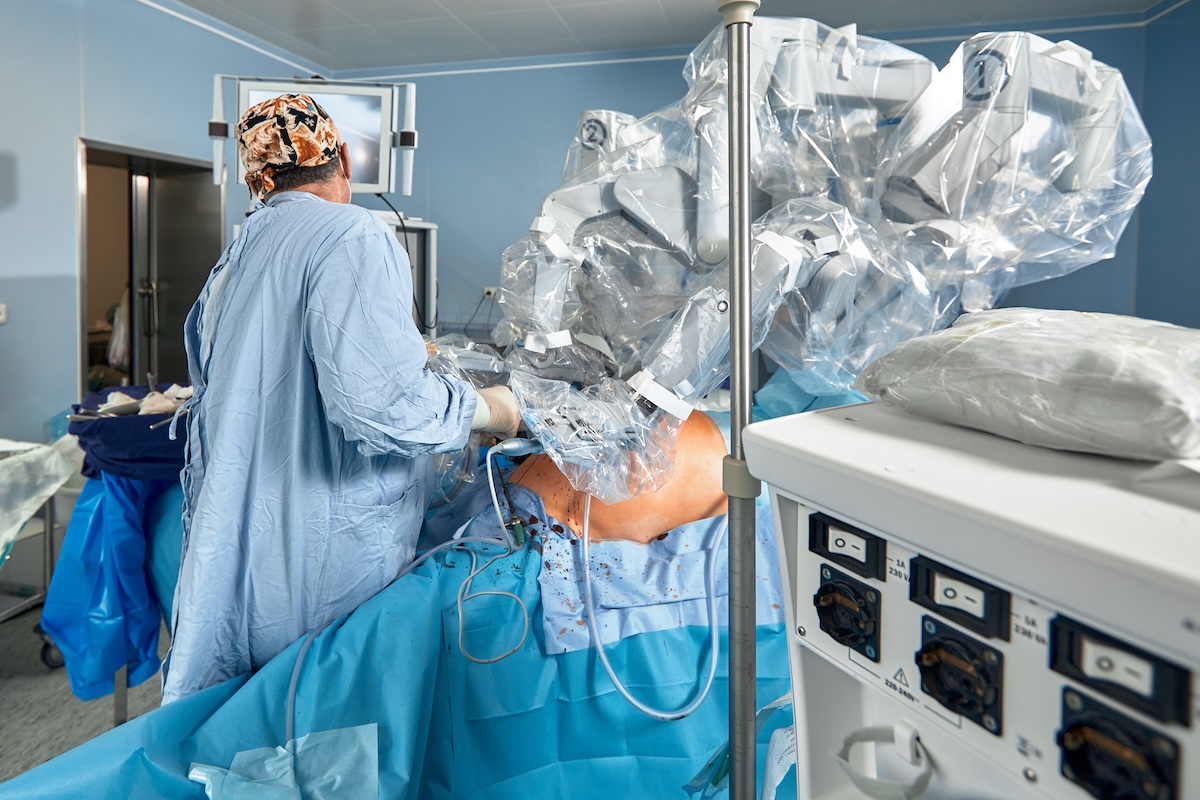Colorectal cancer: a common disease with increasingly effective and safe solutions

Colorectal cancer is one of the most common malignant tumours in developed countries. It affects the colon and rectum, the final segments of the large intestine, and usually starts from polyps that, over time, can develop into malignant tumours if not detected and removed in time.
Dr Francisco Javier Die Trill, general surgeon and coloproctology specialist at Ruber Internacional Hospital, explains that ‘surgery remains one of the cornerstones of colorectal cancer treatment, and minimally invasive techniques such as laparoscopy and robotic surgery have led to great advances in patient recovery and quality of life’.
With more than two decades of experience in managing these tumours, Dr Die Trill, a member of the team led by Dr César Canales Bedoya, head of the General and Digestive Surgery Department at the hospital, offers a highly specialised surgical approach that seeks to combine efficacy, precision and minimal morbidity. ‘Thanks to robotic surgery, we achieve faster recovery, less post-operative pain and better aesthetic results,’ says the specialist.
The importance of early detection High resolution image. This link will open using lightbox, there may be a context switchThe most common warning signs include fatigue, chronic anaemia, bleeding from the anus, changes in bowel habits or black stools. If any of these signs are present, Dr Die Trill insists on immediate consultation: ‘Early diagnosis completely changes the prognosis of the disease.’
High resolution image. This link will open using lightbox, there may be a context switchThe most common warning signs include fatigue, chronic anaemia, bleeding from the anus, changes in bowel habits or black stools. If any of these signs are present, Dr Die Trill insists on immediate consultation: ‘Early diagnosis completely changes the prognosis of the disease.’
In tumours located near the anus, where surgery is more complex due to the proximity of the nerves responsible for continence and sexual function, robotic surgery offers notable advantages. ‘It allows us to work with millimetre precision, preserving key structures and reducing functional sequelae,’ explains the doctor.
In addition, the treatment of colorectal cancer is supported by complementary therapies such as radiotherapy and chemotherapy, applied before or after surgery, depending on the case. Each patient is studied on an individual basis in multidisciplinary clinical sessions together with the hospital's Medical Oncology, Radiation Oncology and Radiodiagnostics departments.
Post-surgery follow-up is essential to prevent recurrence and detect new polyps. It includes clinical check-ups, tumour marker tests, colonoscopies and imaging tests. ‘We don't just treat cancer; we help patients regain their functionality, emotional well-being and normal life,’ says Dr Die Trill.
He also highlights recent strategies such as the ‘Watch and Wait’ protocol, which allows initial surgery to be avoided in selected cases of rectal cancer after a complete response to neoadjuvant treatment, always under strict medical supervision.
Health Content
Health Content
- 3 de marzo de 2026
Cómo utilizar los inhaladores en niños: guía práctica para padres y cuidadores
El uso correcto de los inhaladores en la infancia es fundamental para garantizar la eficacia del tratamiento de enfermedades respiratorias como el asma.Hospital Quirónsalud Barcelonaen/health-centers/hospital-quironsalud-barcelona - 3 de marzo de 2026
Dolor de garganta en invierno: cómo diferenciar su causa y tratarlo correctamente
Picor, escozor o dificultad al tragar: el dolor de garganta es habitual en invierno. La mayoría de los casos son leves, pero distinguir entre virus, bacterias o simple irrita...Hospital Universitari Dexeusen/health-centers/hospital-universitari-dexeusOtorrinolaringologíaen/specialities/otorrinolaringologiaOtorrinolaringología
- March 3, 2026
The Anti-Inflammatory diet: key to improving fertility and reducing pregnancy complications
“Diet doesn’t just nourish: it regulates inflammation and creates the right immune environment to conceive,” explains a specialist in immunonutrition.Hospital Ruber Internacionalen/health-centers/hospital-quironsalud-ruber-internacional






